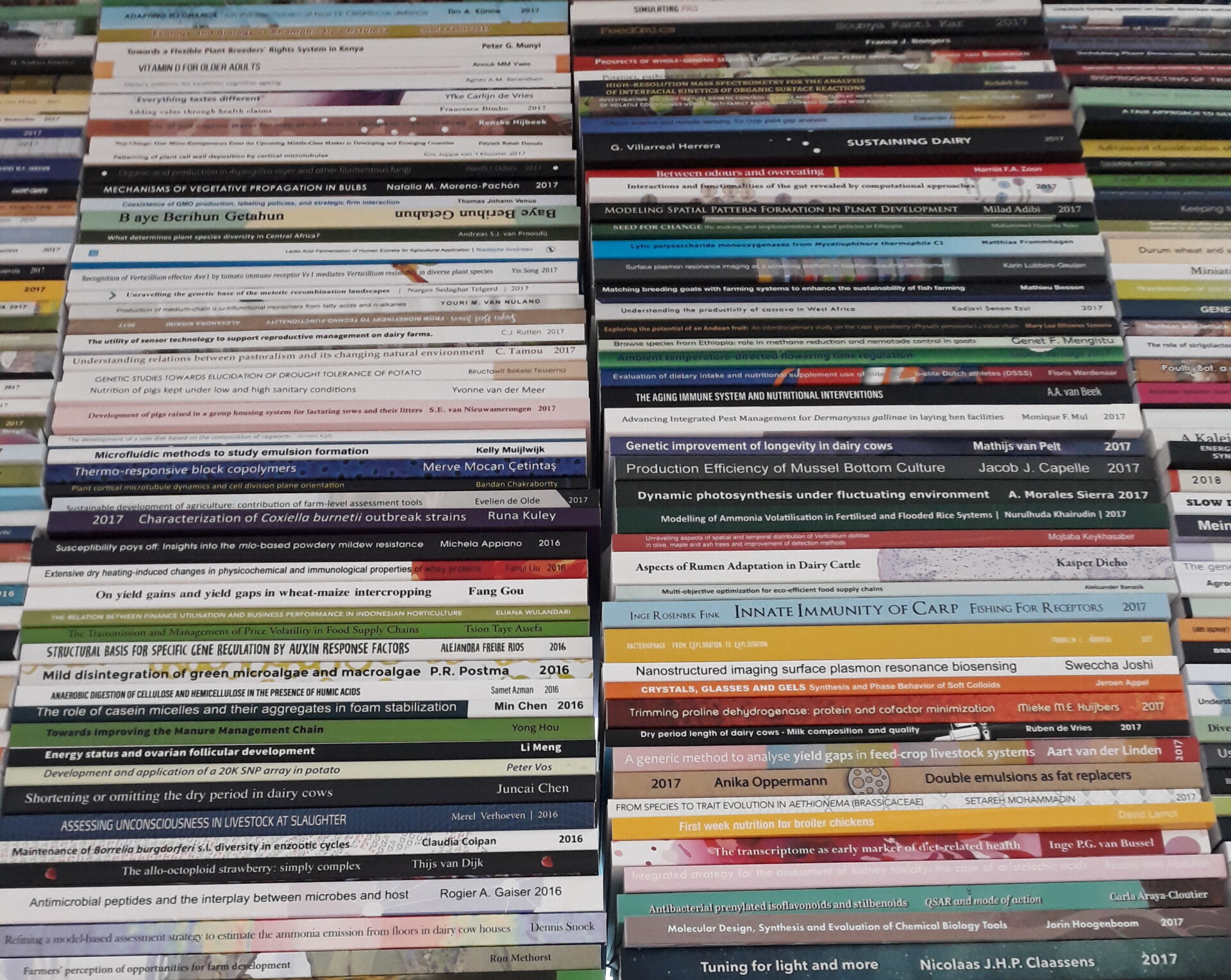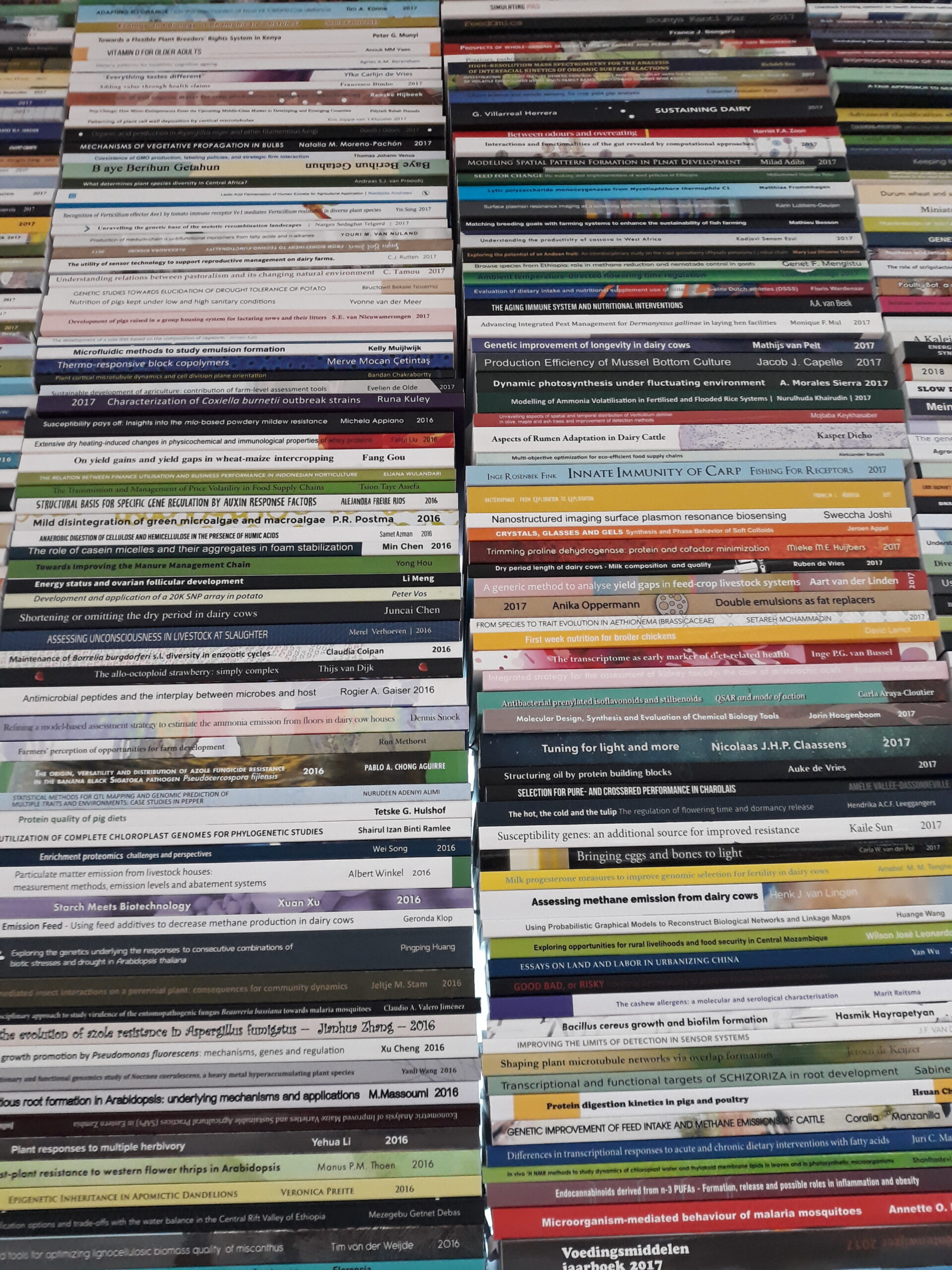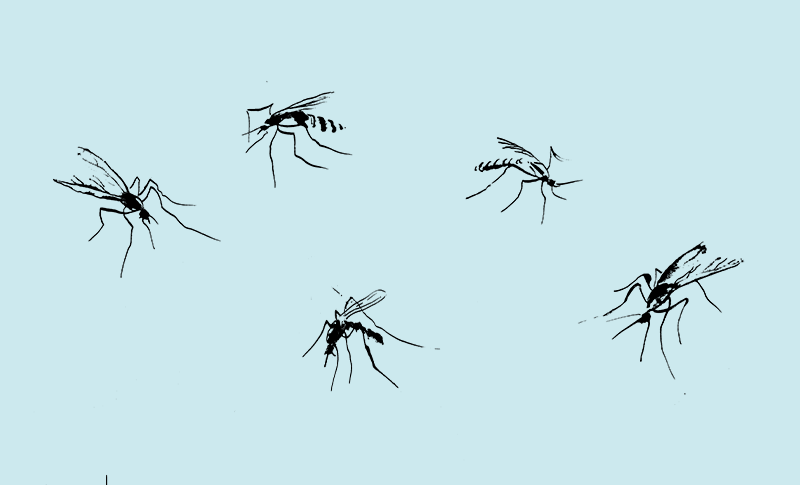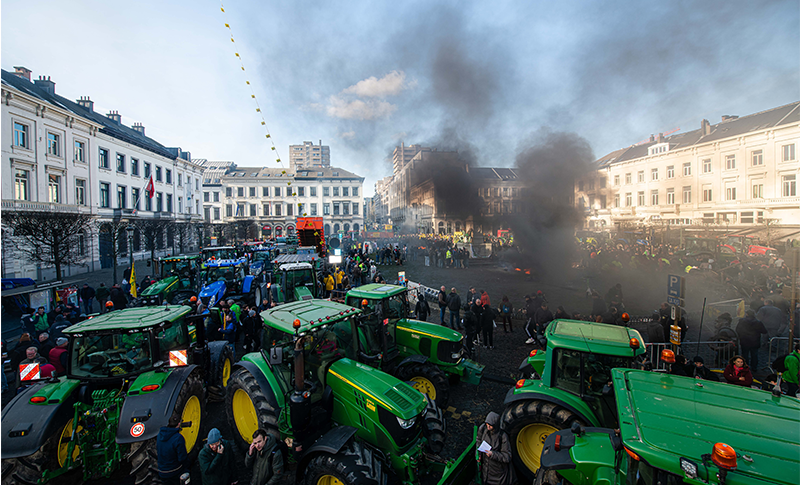Leakage
One risk when using pesticides is that some leaks away when it rains. The pesticide is carried off by the water and soil particles. Relief in the landscape makes the leakage worse. Meindert Commelin studied the extent to which this happens in arable fields in South Limburg during rainfall. Potato fields experience the biggest leakage of pesticides. Commelin also built a model to simulate the leaching, but its predictive value is not yet much good.
Pesticide Transport during Erosive Rainfall-runoff Events.
Meindert Commelin. Supervisor Violet Geissen
Mosquitoes’ preferences
In the Netherlands, mosquitoes are most prevalent in the countryside, in higher lying areas with sandy soil. Research by Rody Blom shows this. He studied the prevalence of mosquitoes of the Culex pipiens group, the main carriers of viruses such as the West Nile, Sindbis and Usutu viruses. His studies show viruses get through the winter via mosquitoes in hibernation. Each mosquito species has its own preferences in terms of habitat. Some prefer dry crawl space in the countryside while others like flooded crawl spaces in the city. Each mozzie to its own. Which only makes fighting the diseases even harder.
Chasing Culex. Rody Blom.
Supervisors Sander Koenraadt and Marcel Dicke
Growth
Smallholder farmers in sub-Saharan Africa are struggling. Their production and turnover have fallen by a third in the past decade, according to research by Philip R. Wollburg. The lower yields are largely due to climate change. Mixed cultivation can increase farms’ resilience but is not enough on its own to put an end to the extreme poverty. Economic growth can, however, resolve the problem. The extra greenhouse gas emissions as a result of this growth are a marginal factor according to Wollburg’s calculations: less than five per cent of total global emissions. So that shouldn’t be an obstacle.
Poverty, Climate Change, and Smallholder Agriculture.
Philip R. Wollburg. Supervisor Erwin Bulte




